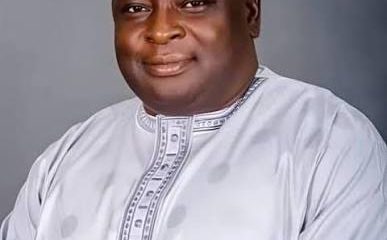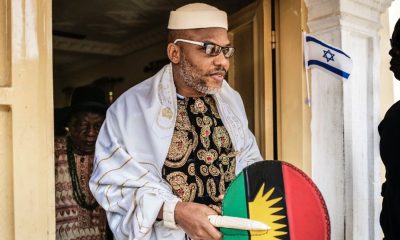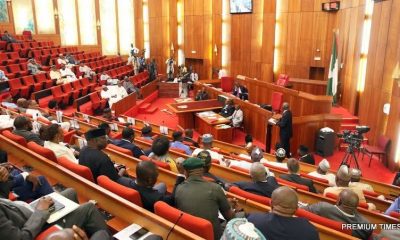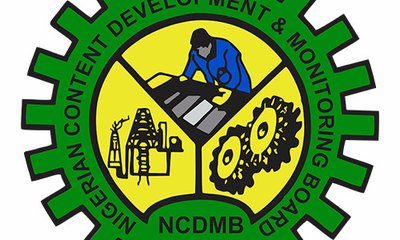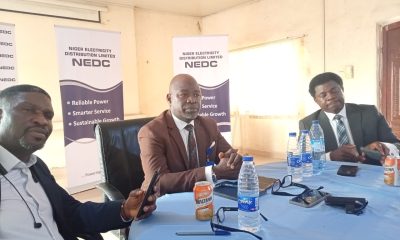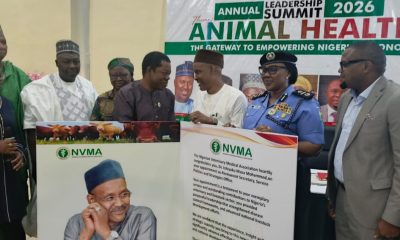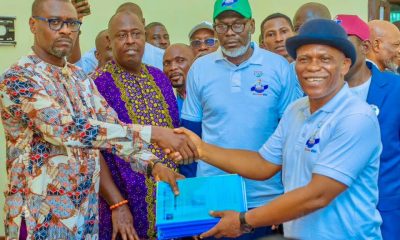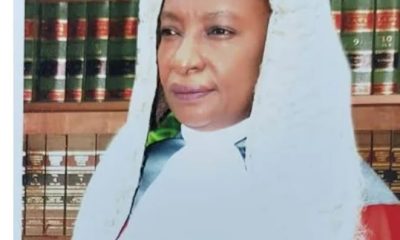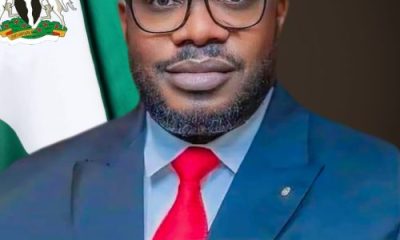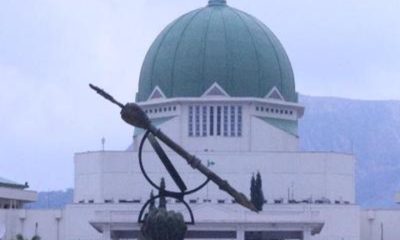Politics
My Administration Won’t Abandon Any Project – Gov Diri *Fulfils Car Promise To Police Officer That Rejected $17,000 Bribe
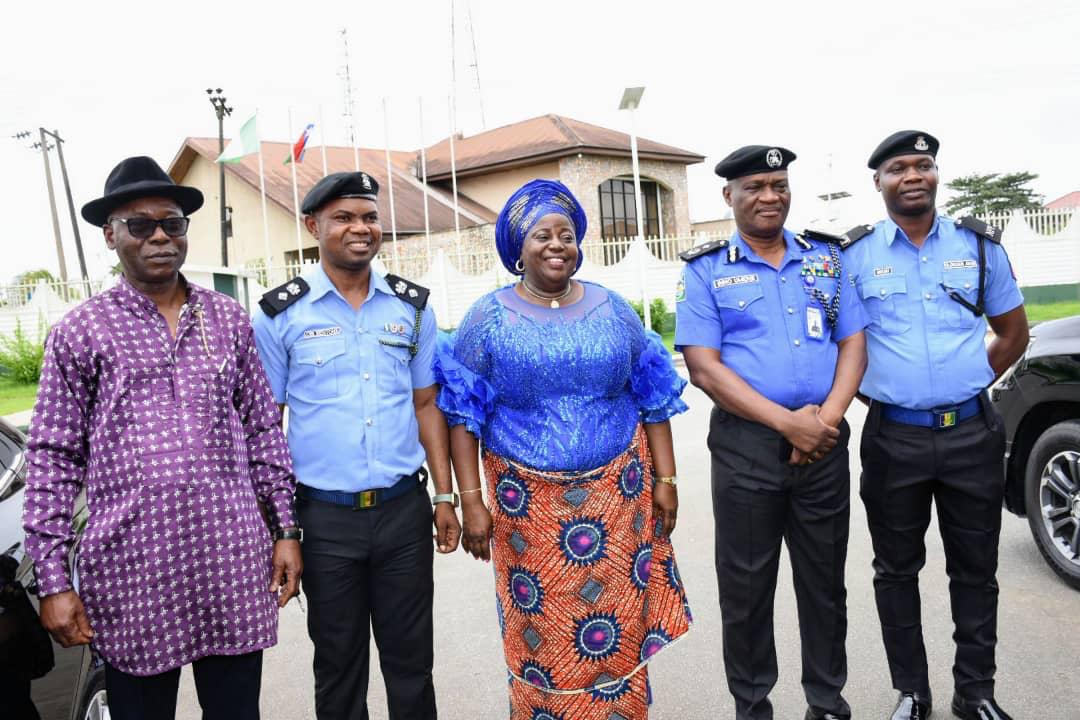
By David Owei, Yenagoa.
Governor of Bayelsa State, Senator Douye Diri, has assured that his administration will not leave any project unfinished when he leaves office in February 2028.
Senator Diri gave the assurance on Wednesday at the 169th session of the state executive council meeting in Government House, Yenagoa.
He reaffirmed his administration’s commitment to completion of all ongoing projects, including legacy projects that it started and those it inherited.
Some of the big-ticket legacy projects include the Sagbama-Ekeremor road, which it inherited from the immediate past administration and completed it with work ongoing from Ekeremor to Agge, the ongoing Yenagoa-Oporoma-Ukubie road, and phase one of the Nembe-Brass road.
Other legacy projects are the nine-storey civil servants secretariat, the 25,000capacity stadium, the 60mw gas turbine plant among several other infrastructure projects initiated by his administration.
The governor equally assured that funding of these high profile projects will not pose any challenge.
According to the Bayelsa governor, his administration’s target to make the headquarters of all eight local government areas in the state accessible by road was on course.
His words: “Contractors handling some of these projects were inherited by this government and are known to everyone. All the projects that are ongoing will be completed and our goal is to complete them before we leave office.
“Upon the completion of the Sagbama-Ekeremor road that we inherited, we have no doubt that it will add value to lives as travel time and insecurity will be reduced drastically.”
Diri gave an update on the Bayelsa West senatorial road between Ekeremor and Agge, saying it was now being sand-filled by the contractors, China Civil Engineering and Construction Corporation (CCECC) while that of Bayelsa Central to Oporoma and the Nembe-Brass road in the eastern senatorial district were nearing completion.
He further stated that the federal government, which took over construction of the second phase of the Nembe-Brass road, had released 30 per cent of the contract sum.
On power, Diri said the new gas turbines procured by his administration would ensure Bayelsans enjoyed 24-hour electricity by the end of this year.
“Power is critical to industrialisation. Power supply was my agenda from my first tenure. Today we are almost there. The preparations are very high. Very soon the new gas turbines will arrive.
“My focus is to resolve the issue of electricity so that we will have our own independent power plant.”
Earlier, the governor fulfilled his pledge to Bayelsa State-born Chief Superintendent of Police Sentome Obi as he presented a brand new saloon car to the officer.
CSP Obi, who heads the Financial and Cybercrime Unit at Zone 16 Command, Yenagoa, earned national acclaim following his rejection of a $17,000 bribe from a crime suspect.
As a reward for his honesty and dedication to duty, Diri at a Government House reception on July 23 announced a three-bedroom apartment and car reward for the gallant policeman.
Obi was also honoured by the Force with the Inspector-General of Police Integrity and Police Officer of the Year Award for 2024.
Presenting the car to the officer in Government House, the governor, who was represented by his Special Adviser on Security 1, CP Akpoebi Agberebi (rtd), said the gesture was in fulfilment of his promise.
He expressed the hope that the gift would encourage him and other officers to continue to discharge their professional duties more efficiently.
He urged Obi not to relent but to continue to put in his best, which he noted will contribute to the sustenance of peace and security in the state.
He recalled his recommendation to the IGP, Kayode Egbetokun, for special promotion and stated that Obi had been promoted from the rank of Superintendent of Police to Chief Superintendent of Police.
Responding, CSP Sentome Obi thanked God, the IGP, and Governor Diri for the honour, saying it will spur him to do more in the service.
Politics
NEDC Strengthens Ties with Journalists to Boost Public Awareness
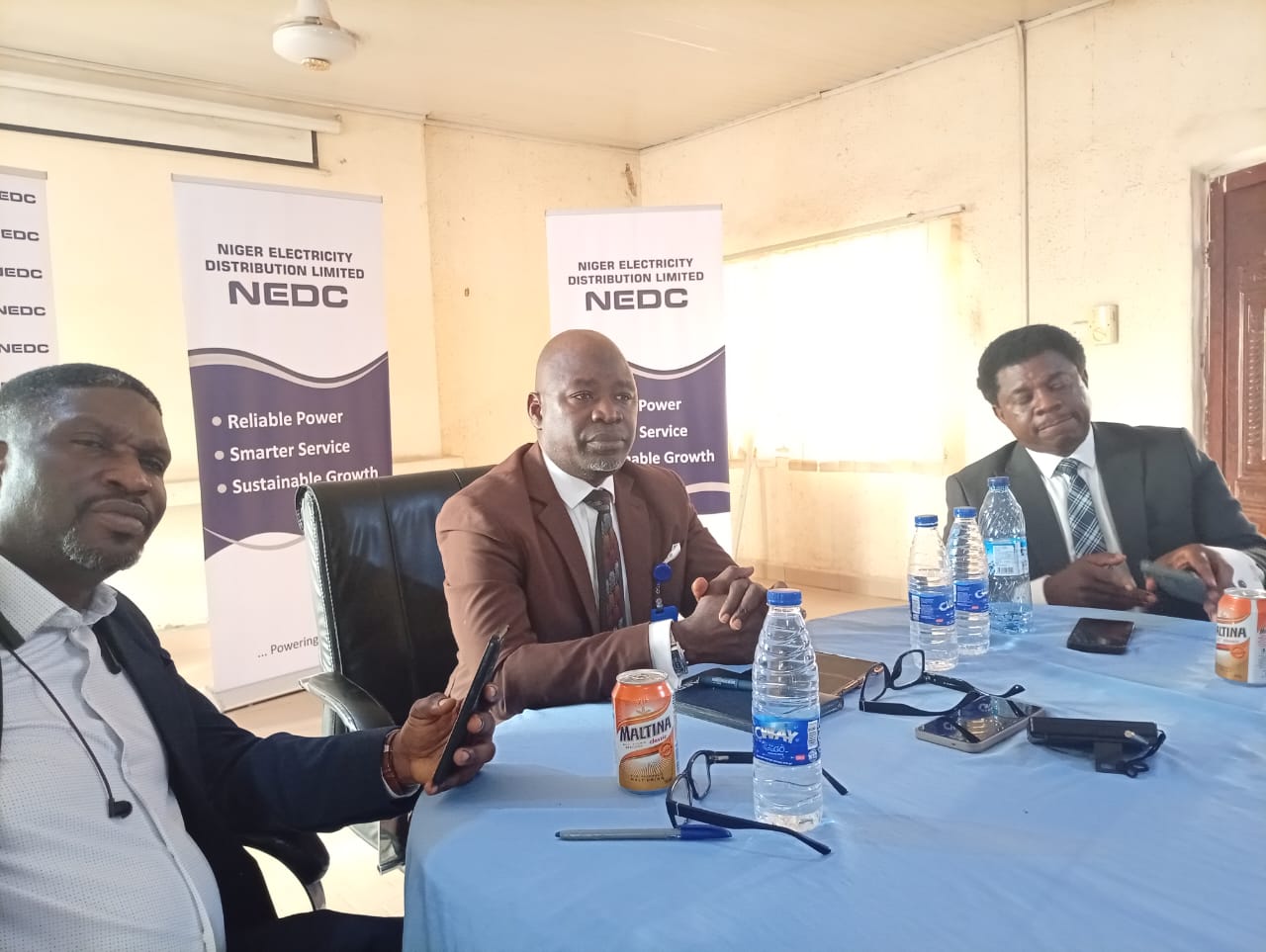
BY UTHMAN BABA-NASEER,MINNA
The Niger Electric Distribution Company Limited (NEDC) has announced plans to partner with journalists to improve development communication and increase public awareness of its activities and services.
The Managing Director of the company, Engineer Sam Odekina, made this known during a two-hour interactive session with journalists at his office.
He described the media as a key partner in progress, saying the company decided to work closely with journalists to better inform and educate the public about its operations, policies, and ongoing projects.
According to him, many electricity consumers want more information about the company’s activities. He explained that the media can serve as a reliable bridge between NEDC and its customers by providing accurate and timely information.
Engineer Odekina also described the media as the “fourth estate of the realm,” stressing its vital role in promoting transparency, accountability, and public understanding. He expressed confidence that the partnership would strengthen communication and build trust between the company and its customers.
In his remarks, the Head of Consumer Experience, Mr. Kene Ofili, appreciated the media for its contributions, noting that journalists have helped the company to properly inform and guide the public on important issues.
He appealed to journalists to always verify information with the company before broadcasting or publishing reports, to ensure accuracy and fairness.
Also speaking, the Head of Brand Marketing and Corporate Communication Mr. Omede Odekina assured journalists that the company would continue to share information about its challenges and activities so that the public can have a clearer understanding of its operations.
The interactive session highlighted the long-standing relationship between NEDC and the media and reaffirmed their commitment to working together in the interest of the public.
Politics
32 PAP Scholarship Beneficiaries Bag First Class *134 Graduate With Second-Class Upper Division *Excellent Academic Feats Impressive- Otuaro
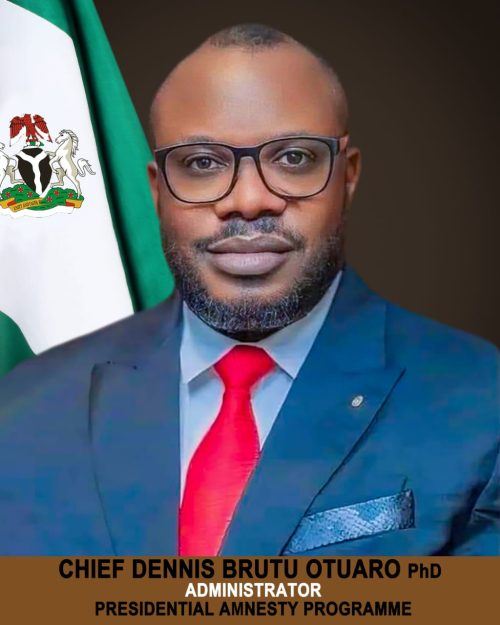
By David Owei,Bayelsa
Thirty-two students on the scholarship of the Presidential Amnesty Programme made first class in different competitive courses in 2025 at various universities in Nigeria.
No fewer than 134 of the scholarship beneficiaries also graduated with second-class upper division in various courses of study in the same year .
The courses are law, pharmacy, aeronautical engineering, cybersecurity, electrical engineering, software engineering, nursing science, mechanical engineering, architecture, accounting and criminology.
Others include computer science, anatomy, international relations and diplomacy, geography and regional planning, microbiology, public health, information technology, medical laboratory science, estate management and mass communication.
The PAP Administrator, Dr Dennis Brutu Otuaro, has commended the sponsored students under his leadership for graduating with first-class and second-class upper division grades in various disciplines.
He expressed joy over their outstanding academic performances, noting that his administration is greatly encouraged by their exemplary conduct and seriousness as shown by the quality of their academic grades.
Dr Otuaro said the scholarship beneficiaries’ excellent academic feats have formed part of the success stories of the programme in the promotion of human capital development and peace in the Niger Delta.
He stated that their sterling academic performances were a proof of the well-thought-out educational objectives of the scholarship scheme and the mandate of the PAP, stressing that it conforms with the Renewed Hope Agenda of President Bola Tinubu.
Dr Otuaro said that they had justified the investment in their education and also made the Federal Government, the PAP Office, their communities and the Niger Delta proud.
The PAP Administrator attributed the admirable academic achievements of the scholarship students to President Tinubu’s strong support for the programme and the effective supervisory role of the National Security Adviser, Mallam Nuhu Ribadu.
He called on current PAP scholarship beneficiaries in different universities to emulate their predecessors and study hard to maintain the impressive academic record.
Dr Otuaro said, “We are indeed happy with the excellent academic performances of our scholarship students in 2025. The number of beneficiaries, all from the Niger Delta, that made first-class and second-class upper division is very encouraging. We commend all of them for the great feats.
“But these commendable academic achievements indicate that we are focused on the implementation of the PAP mandate for the transformation of the Niger Delta through educational and vocational schemes.
“We express our deep appreciation to His Excellency, President Bola Ahmed Tinubu, GCFR. Without his strong support, these impressive academic feats of our scholarship students and all the success stories recorded would not have been achieved.
“We also extend our sincere gratitude to the Office of the National Security Adviser for effectively supervising the programme in line with Mr President’s Renewed Hope Agenda for the people of the Niger Delta.
“We have a listening father in Mr President who has shown it clearly in his actions that the Niger Delta is on his priority list of development. He has given priority to agencies in the region aside from the ongoing efforts in the construction of the trans-Niger Delta Highway from Lagos to Calabar.
“The people of the Niger Delta are happy with Mr President and what his administration is doing for the region, and will react in due course with the right expression of gratitude.”
Politics
Bayelsa Group Mulls Legal Actions Against Federal govt over 24 Additional LGAs,Resource Control
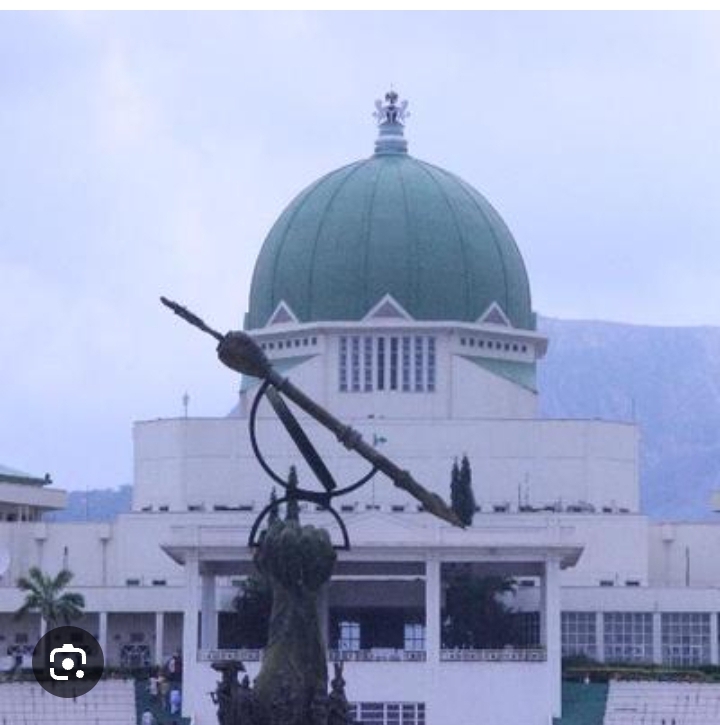
By David Owei,Bayelsa
A group under the aegis of Supreme Egbesu Assembly ( SEA ) has not only asked a law firm to sue the Federal government of Nigeria,that the National Assemblies over its failure to create or confirm the 24 additional local government areas of Bayelsa state,but has equally urged the federal government to revisit the 13% derivation principle,which they considered as lopsided and an affront on the state ,being a major oil producing state that has been contributing to the mainstay of the nation,s economy.
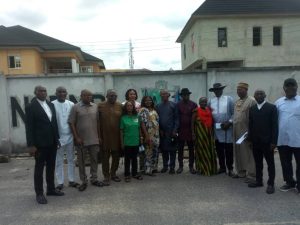
Failure to address these anomalies ,they will have no option other than to take legal actions against the federal government of Nigeria,with petitions sent to the clerk of House of Representatives and National Assembly.
The group made their grievances known in a press briefing at the Ernest Ikoli press centre ,Ekeki – Yenagoa.
According to the group,s Secretary,Dr Felix Tuodolo who was flanked by other members of the Supreme Egbesu Assembly, the national Assembly enacted the 1999 constitution which contained the provision of sections ,4,7 and 8 of the 1999 constitution as amended relating to the alteration of the 1999 constitution and creation of additional local government areas of Bayelsa state and that Bayelsa state was created a long side Eboyin ,Ekiti,Gombe,Nasarawa and Zamfara state,among states that were created in 1999,it’s only Bayels state that has the smallest number of local government with just eight local government areas.
That Nasarawa state for instance has 13 local government areas,Eboyin state has 13 local government areas, Gombe state has 24 local government areas,Zamfara state has 14 local government areas and Bayelsa state has 8 local government areas and that the creation of Bayelsa state with just 8 local government areas creates a clear imbalance both in governance and distribution of revenue allocation to states of the federation.
That the situation however informed the creation of additional 24 local government areas by the government of Bayelsa state duly to the gross injustice and the Bayelsa state House of Assembly in compliance with section 7 of the constitution of the federal republic of Nigeria 1999( as amended) approved and signed into law the said 24 local areas and since then all attempts to approve the 24 additional local government areas for Bayelsa state has proved abortive.
Speaking further,Dr Felix Tuodolo, the immediate past Commissioner for Ijaw National Affairs,posited that recently the National Assembly held it’s zonal constitutional conference for the proposed amendment of the 1999 and the Supreme Egbesu Assembly presented it’s position paper demanding for the creation of additional local government areas for Bayelsa state,and despite the continuous demand by the people of Bayelsa state ,the National Assembly has constantly refused to accede the sincere complains,hence they had contacted the services of E.K Okorodas and Co to sue the federal government.
The group also sued the Federal government of Nigeria,saying that the National Assembly enacted the 1999 constitution of the federal republic of Nigeria ,with the provisions of section 44(3) and section 1
62(2) relating to the acquisition ,revenue formula and distribution of revenues derived from natural resources from states in the federation and the said section 44 (3) of the 1999 constitution as amended gives ownership of entire property in and control of all minerals, mineral oils and gas in order or upon any land in Nigeria or in,under or upon any land in Nigeria or in,under or upon the territorial waters and exclusive economic zone of Nigeria to the Government of federation.
Other members of the group that added their voices were Mr Ebi Waribigha and Ms Primrose Oringeriya – Kpokopsei,decrying the injustices,marginalization that federal government has metted on Bayelsa state as far as the creation of additional local government areas and resource control were concerned.
Speaking to journalists earlier,Bar Ebinabo Kenneth Okorodas, in the interest of justice,they demand on behalf of their clients,that they cause an amendment of part 1 of the first schedule of the 1999 constitution to reflect the 24 additional local government areas of Bayelsa state and in the interest of justice,they also demand on behalf of their clients,that the National Assembly delete section 44 (3) and section 162 (2) of the 1999 constitution to reflect states control of her natural resources and pays an agreed percentage to the federal government in line with the spirit and letter of sovereignty,an failure to comply with this demand within 21 days from the date of such service of this notice shall result in commencement of legal proceedings without further notice.
-

 Politics6 months ago
Politics6 months agoASUU-NDU protest against FG loans, unpaid salaries,Non-Implementation of agreements …..says loans is generational slavery
-
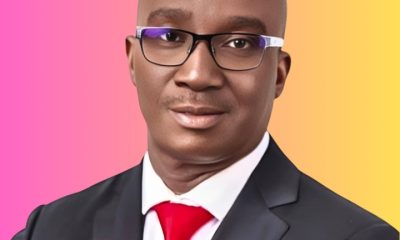
 Politics9 months ago
Politics9 months agoGov Okpebholo moves to end Cultism *Threatens action against leading cult groups *Vows to demolish more cult houses in Edo State
-

 Business & Economy6 months ago
Business & Economy6 months agoPC-NCG Issues Disclaimer on Purported Nigerian Coast Guard National Orientation Exercise In Anambra State
-

 Entertainment2 years ago
Entertainment2 years agoJubilation galore as Parishioners of CKC Kurudu celebrate their cultural heritage ….FG should exploit our Cultural heritage to unite Nigerians-Rev Fr Dim
-

 General News2 years ago
General News2 years agoReps hold public hearing on FMC Ugwuaji Awkunanaw
-

 General News2 years ago
General News2 years agoCelebration galore as UDA Successfully Elected New Exco ……I will digitalize processes that will raise UDA to greater height -Comr. Okejiri
-

 Law & Crime8 months ago
Law & Crime8 months agoICPC pledges to collaborate with FIDA to end Sex for Marks in tertiary institutions
-

 Law & Crime7 months ago
Law & Crime7 months agoLegal practitioner raises alarm over threat to his life by CSP Muhammed Abdulkareem



